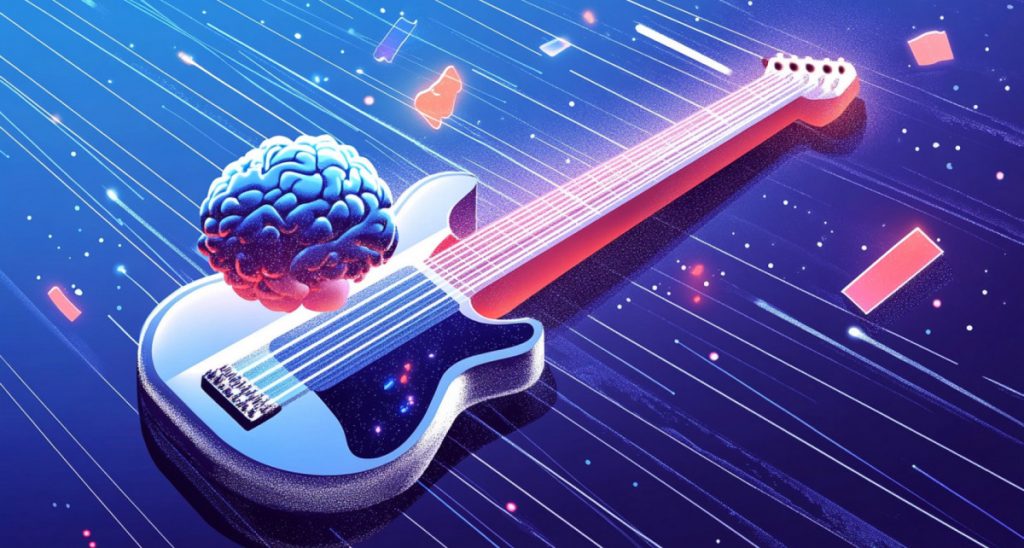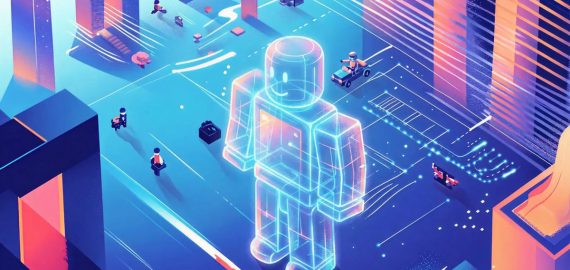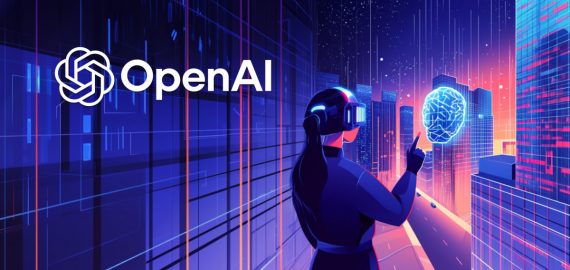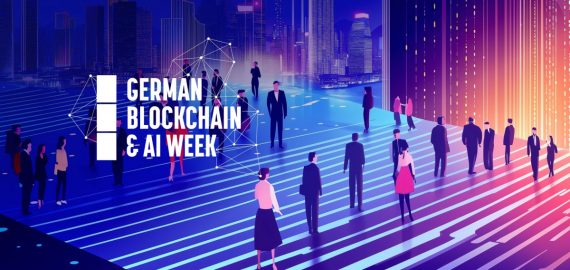The Future of Music: AI Agents as Creative Partners for Musicians


In Brief
The function of artificial intelligence in music creation, its impact on musicians, and its broader ramifications for the music industry are all examined in this analysis.

The creative arts, especially music, are changing as a result of artificial intelligence. AI agents are becoming more than simply tools; they are also becoming cooperative collaborators that improve the creative process. With the use of recent data and examples, this article explores the function of AI in music production, its effects on musicians, and the wider effects on the music business.
From Idea to Hit Song with AI Magic
The use of AI in music creation has increased dramatically in recent years. Artists may now produce music swiftly and effectively thanks to a variety of platforms. For example, Suno AI, formerly known as Bark, can produce whole songs in a matter of seconds when given human input. To create recordings that sound polished and professional, users may pick genres, moods, and even instruments. One noteworthy example is a song that was created with the instruction “a sad song about a broken toy,” demonstrating the tool’s capacity to create catchy melodies and relatable lyrics that appeal to listeners.
MusicGen, created by Meta, is another well-known player. By inputting prompts that specify the intended output, such as instrument types and pace, users of this platform can produce music. A user may ask for a “fast-paced party song for a YouTube vlog,” for instance, and the output would be a lively tune that fits in with the latest trends. Additionally, MusicGen allows users to contribute audio, which allows them to polish their songs further.
Human-Machine Collaboration in Creativity
AI agents and human musicians working together create a new creative dynamic. AI improves human creativity by offering new concepts and variants, not by replacing them. This cooperation is best demonstrated by AIVA (Artificial Intelligence Virtual Artist), which lets users direct compositions by choosing genres and modifying parameters without merely depending on text cues. With this approach, artists may take advantage of AI’s analytical powers while retaining creative freedom.
In addition, Staccato has become a ground-breaking instrument that strikes a balance between ease of use and excellent results. It enables users to easily expand on preexisting musical concepts, producing significant alterations that complement the mood and style of the original song. For producers that want to expand on their original ideas rather than start from scratch, this flexibility is essential.
Democratization of the Production of Music
AI has a big part to play in democratizing music production. In the past, creating music needed a large financial outlay as well as specialized knowledge. On the other hand, sites like as Udio allow teams or people with different skill levels to collaborate on music creation. Since Udio facilitates real-time editing and project management, users can work together more efficiently.
This tendency is further demonstrated by the emergence of smartphone applications that let users participate in AI-powered group jam sessions. As these technologies are now more widely available, more people are participating in the music-making process; 38% of artists currently use AI to create artwork inspired by their music.
Ethical Issues and Difficulties
There are clear benefits to using AI in music production, but there are also moral concerns about copyright and ownership. Who owns the copyright to compositions made by AI agents is unclear since the legal framework governing AI-generated works is currently evolving. Artists have already contested ownership of works created with AI techniques in high-profile cases.
Furthermore, as AI technology develops, worries regarding job displacement within the sector continue. AI may change conventional roles in music creation, but it is unlikely to fully replace human artists.
British novelists Kate Mosse and Richard Osman have criticized the UK government’s proposal to allow AI companies to use creators’ works without explicit permission, arguing that it amounts to theft and threatens the creative industry’s growth. 
Abba co-founder Björn Ulvaeus has expressed concern over the impact of generative AI on musicians’ revenue, following a report by the International Confederation of Societies of Authors and Composers (CISAC). The study projects that AI-generated music could reduce artists’ income by nearly 20% by 2028, equating to a loss of around €22 billion over five years. Ulvaeus emphasizes the need for regulations to ensure fair compensation for artists.
Black Eyed Peas star will.i.am believes that true artists in the music industry should not worry about AI replacing their roles. He argues that AI will outdo those creating music solely to trend on platforms like TikTok. However, he foresees AI affecting non-creative roles in the industry, such as managers, label executives, finance auditors, and attorneys. He emphasizes that AI supplements rather than replaces human creativity. 
Australian singer-songwriter Tina Arena has voiced strong concerns over the impact of AI on the music industry. A report commissioned by APRA AMCOS highlights fears that generative AI tools, which can create music, may threaten artists’ livelihoods. The survey reveals that 82% of music creators worry about AI affecting their income, with 97% urging policymakers to regulate AI use urgently.
AI’s Role in Music’s Future
AI in music has a lot of promise in the future. According to estimations, the market for AI-driven music is expected to increase dramatically, reaching $38.71 billion by 2033. Businesses such as Sony are using artificial intelligence to forecast music trends and produce customized songs for clients.
The ability of AI agents to create music is being further improved by the invention of new tools. Humtap, for example, demonstrates how user-friendly interfaces may foster creativity even in those without professional training by enabling users to compose music by humming or singing tunes.
Examples: Effective Partnerships Between AI and Humans
Successful partnerships between AI and human artists are demonstrated by a number of noteworthy projects:
The album “I AM AI,” which was issued by singer Taryn Southern, who is renowned for her experimental approach to music creation, has songs that were co-created with a variety of AI technologies. The album emphasizes how AI may be more than just a tool; it can be a collaborator.
Machine learning algorithms were utilized by the American band YACHT to evaluate their earlier compositions and produce new songs for their album “Chain Tripping.” This project is an example of how artists may use AI’s analytical capabilities without sacrificing their own style.
OpenAI’s MuseNet and experienced musicians have collaborated to create original works that fuse a variety of styles, demonstrating how AI may inspire fresh musical ideas.
In the music business, AI agents mark a new threshold in creative cooperation. These technologies create previously unheard-of opportunities for artistic expression by augmenting human ingenuity rather than replacing it. The future of music is expected to be a rich tapestry made from both machine intelligence and human creativity as musicians continue to experiment with incorporating AI into their processes.
It is imperative that artists use these tools carefully in this changing environment while managing the moral dilemmas they raise. Musicians may redefine creativity and push the limits of what is currently and in the future conceivable in music composition by embracing cooperation with AI agents.
It will be interesting to see how these partnerships develop and influence not only individual careers but also the larger picture of the music business overall as we go further into 2025 and beyond.
Disclaimer
In line with the Trust Project guidelines, please note that the information provided on this page is not intended to be and should not be interpreted as legal, tax, investment, financial, or any other form of advice. It is important to only invest what you can afford to lose and to seek independent financial advice if you have any doubts. For further information, we suggest referring to the terms and conditions as well as the help and support pages provided by the issuer or advertiser. MetaversePost is committed to accurate, unbiased reporting, but market conditions are subject to change without notice.
About The Author
Victoria is a writer on a variety of technology topics including Web3.0, AI and cryptocurrencies. Her extensive experience allows her to write insightful articles for the wider audience.
More articles

Victoria is a writer on a variety of technology topics including Web3.0, AI and cryptocurrencies. Her extensive experience allows her to write insightful articles for the wider audience.


















































